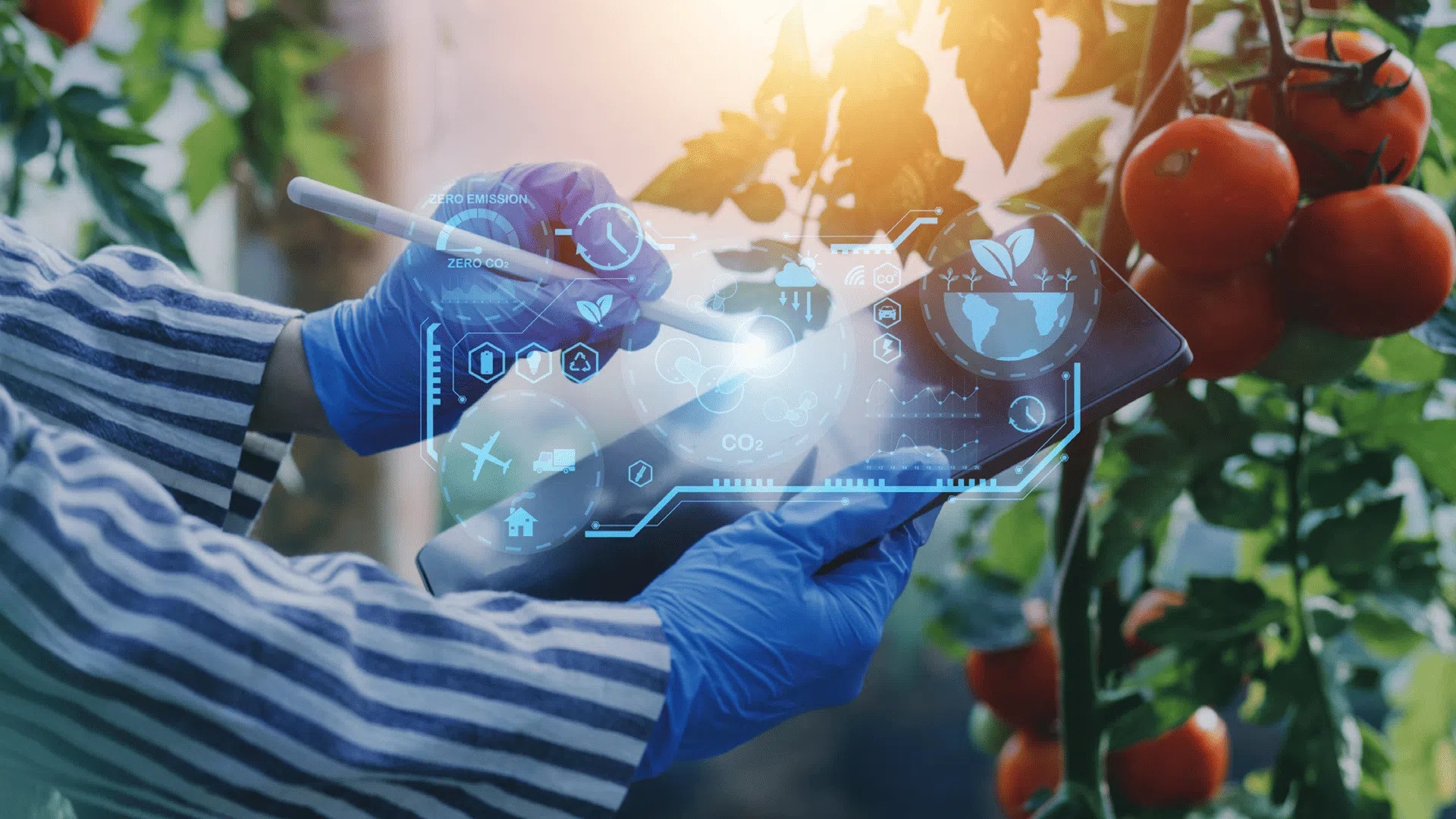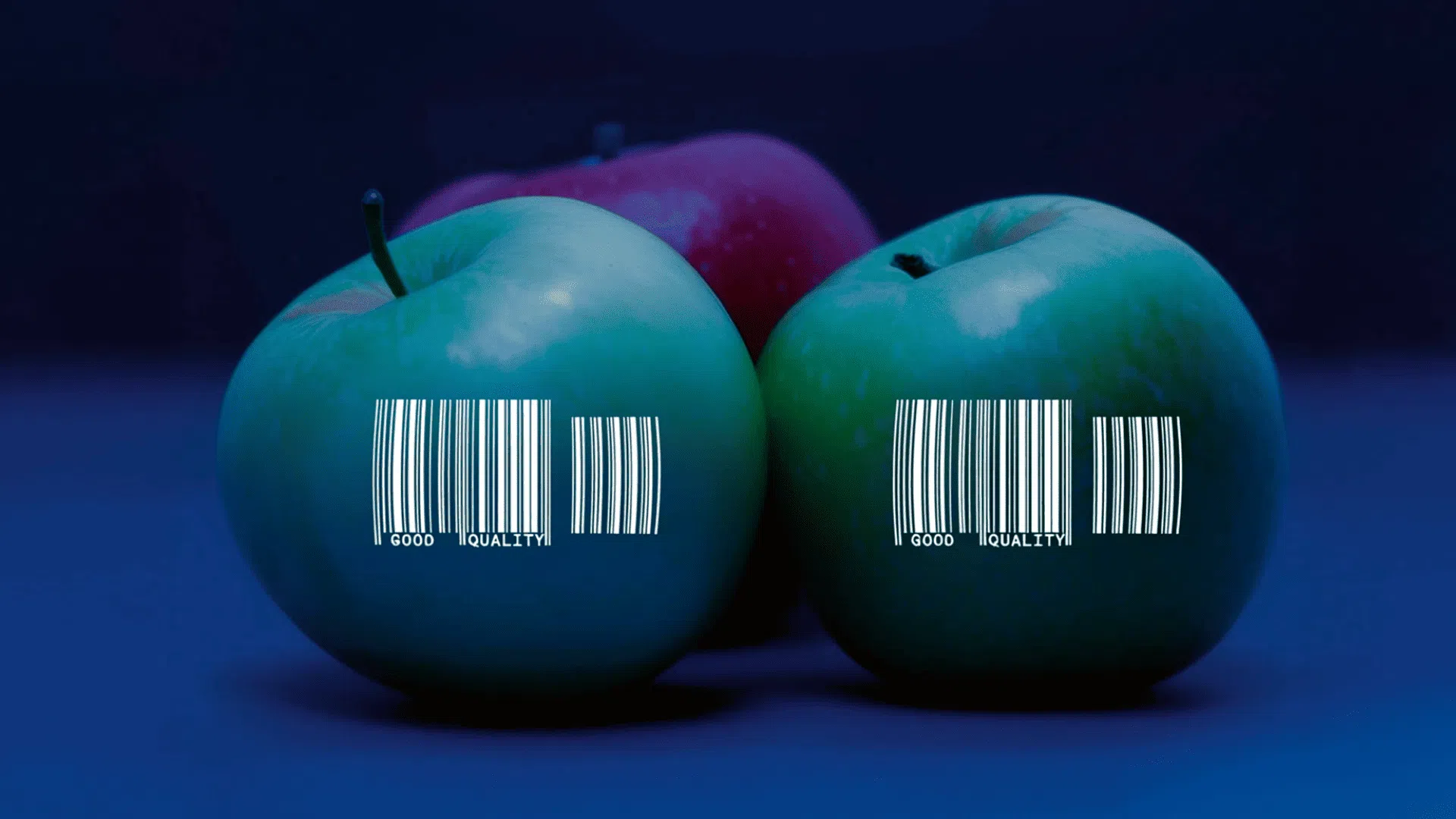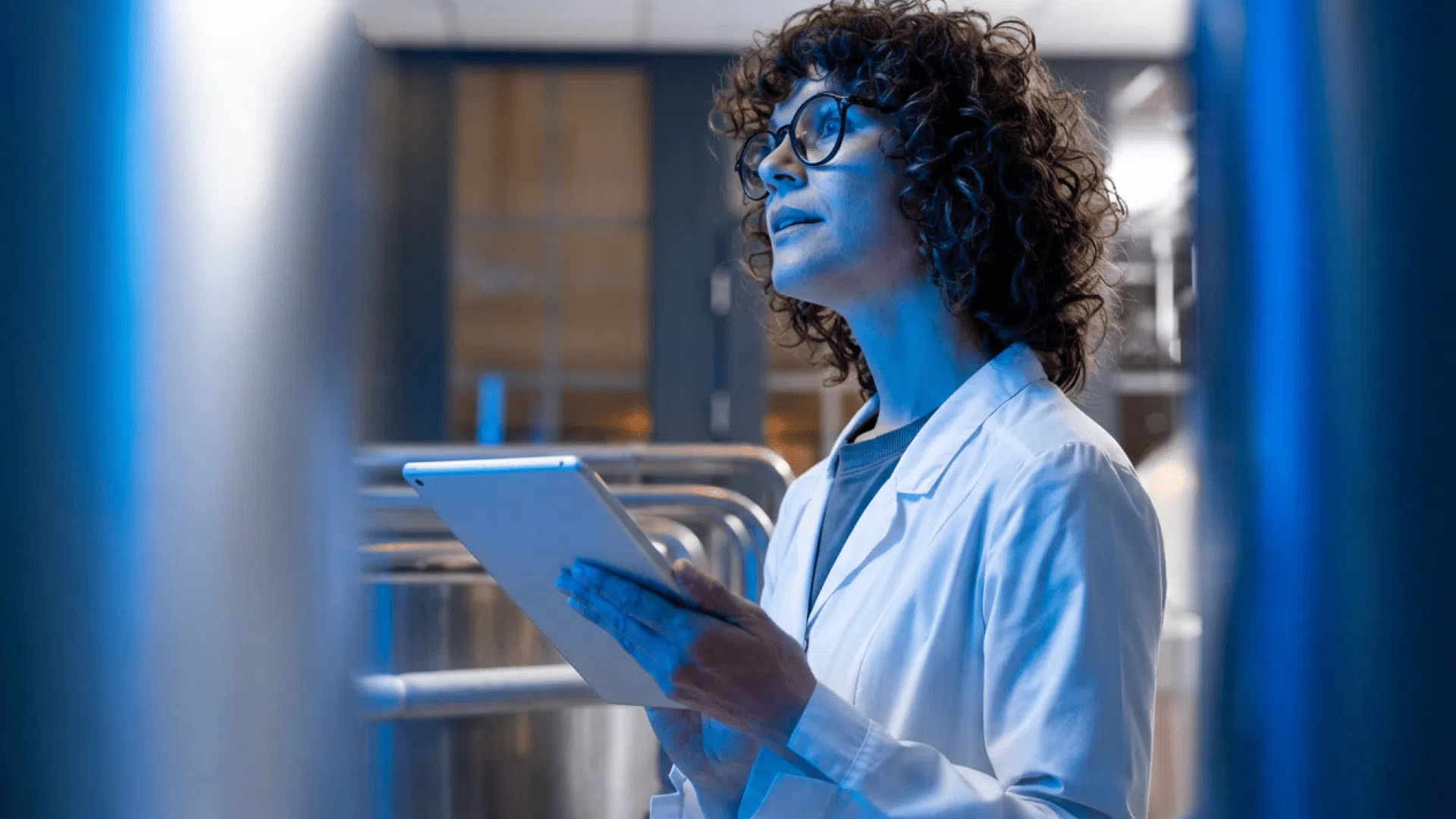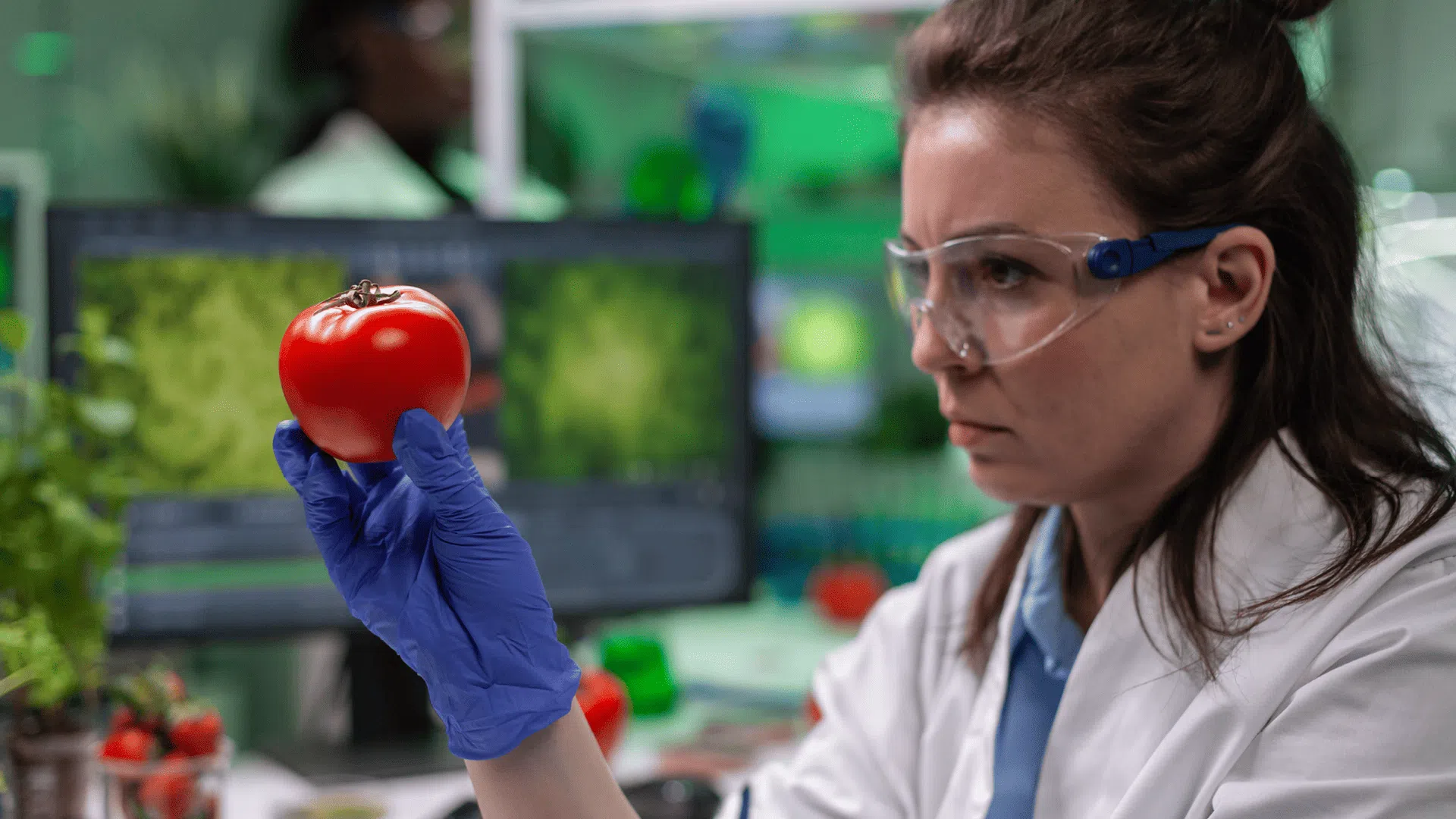Traceability means being able to track food throughout its entire life cycle. We explain how you can guarantee this.

Summary:Food and beverage manufacturers face major challenges: reducing food waste, cutting CO₂ emissions, and meeting the rising demand for transparent processes are essential to remain competitive. An ERP system with processes tailored to the food industry helps achieve these goals. It structures operations, minimizes inefficiencies, and supports the journey toward sustainability – exactly what companies need to stay competitive and meet long-term market demands.
What keeps food manufacturers up at night? The industry must master a wide range of complex requirements that determine the difference between success and stagnation. The most critical include:
According to the Food and Agriculture Organization (FAO) of the United Nations, 1.3 billion tons of food are wasted every year – roughly one third of global consumption. Causes such as overproduction, fluctuating demand, and inefficient storage intensify the problem. The unfortunate result: too much waste and major financial losses.
For food producers, this also means a risk of losing valuable brand reputation. Consumers increasingly expect sustainable production. The solutions to minimize waste and act more responsibly lie in greater transparency, more efficient processes, and innovative technology.
How the right ERP for the food industry helps
To reduce food waste as much as possible, ERP supports efficient inventory management. You can see your current stock, including shelf-life dates, and reorder raw materials in time. Another key advantage: transparent inventory control makes it possible to work according to the First Expired First Out (FEFO) principle. This ensures that materials with the earliest expiration dates are used first, preventing losses caused by items stored too long and making raw material usage more efficient.
In addition, integrated production planning enables precise manufacturing schedules without overcapacity and with targeted use of raw materials. The result: fewer resources used, less waste, and reduced food losses.
Food production faces a balancing act: on one hand, rising energy costs drive up expenses, while on the other hand, companies are expected to operate as climate-neutral as possible. Strict regulations also require reducing both resource use and CO₂ emissions. Yet, food and beverage manufacturers often struggle with outdated infrastructure, high investment costs, and the search for scalable, efficient solutions. Meeting these requirements while staying competitive can quickly feel overwhelming.
How Yaveon’s ERP industry solution helps
With an ERP system tailored to the food industry, you can optimize and plan machine utilization. By aligning production processes precisely, idle times are minimized. Fewer unnecessary downtimes mean lower energy consumption. By using resources more efficiently, you save energy, cut operating costs, and act more sustainably. ERP also enables predictive planning to ensure capacities are used effectively and responsibly. This makes your entire manufacturing process both more economical and more environmentally conscious.
Where do raw materials come from, and what level of quality do they provide? Consumers increasingly expect to know the origin and quality of the products they purchase – and to be sure that they were produced sustainably. At the same time, legal requirements such as the EU Supply Chain Act add pressure on food manufacturers. Ensuring full food traceability across all stages of the supply chain, while managing increasing documentation and compliance demands, is a real challenge.
For producers, this means they are obligated to guarantee end-to-end transparency and more efficient processes – and must react quickly to regulatory changes. Only then can they earn and maintain consumer trust long term.
How the right food ERP helps
Complete transparency and documentation are fundamental factors for sustainable production. With your industry-specific ERP solution, you gain full lot tracking across all products and components, giving you reliable access to origin, composition, and delivery data. Attribute management directly at the item level ensures that critical product characteristics are visible and considered during production. To meet strict compliance requirements, you can also rely on electronic signatures and audit trails. Every change is logged and documented with user and time stamps – creating a secure, verifiable record.
For food and beverage producers, compliance with legal regulations and industry standards is non-negotiable. Whether HACCP, IFS, or BRC: you must meet extensive requirements and provide complete documentation. There is no room for compromise on product quality – safe consumption and long-term customer confidence are essential. At the same time, the pressure from quality audits and certifications continues to rise. Companies relying on manual spreadsheets or unsuitable tools quickly face time and resource bottlenecks.
How Yaveon’s food ERP supports you
Operate regulatory-compliant, reliable, and secure. The right ERP industry solution meets the strict requirements of the food industry and ensures adherence to all relevant standards. Integrated testing processes and quality controls, combined with audit trails and detailed documentation, provide the foundation. Deviations are easily identified in dashboards, enabling quick corrective actions. This not only ensures compliance but also strengthens your market position.
It’s clear: for companies in the food industry, sustainable thinking and production go far beyond environmental protection alone. They are a central factor for business success and long-term progress. Organizations that pursue sustainable strategies not only contribute to a livable future, but also secure long-lasting competitive advantages. Resources are used more efficiently, costs decrease, and trust from customers and partners grows.
These aspects make sustainability in food production a success factor for market leaders:
By reducing raw material usage and waste, you actively lower your carbon footprint, promote the sustainable management of resources, and strengthen competitiveness through eco-friendly innovations. At the same time, you meet growing legal requirements while increasing your attractiveness to environmentally conscious customers and partners.
Sustainable processes improve efficiency and lower costs – the best foundation to develop innovations that open new business opportunities. This enhances financial performance, boosts growth, and increases attractiveness for investors, partners, and customers alike.
Transparency and sustainability foster consumer trust and ensure compliance with global social standards. This strengthens customer loyalty, provides a verifiable supply chain, and builds a positive corporate reputation. Social responsibility also plays a key role in talent acquisition: companies that act sustainably are more attractive employers for skilled professionals, improving employee satisfaction in the long term.
In the food industry, sustainability is no longer optional – it’s an ecological, economic, and reputational imperative. Companies that rely on modern food ERP gain significant benefits: optimized processes increase efficiency, resource waste is reduced, lot tracking ensures full transparency, and legal compliance is maintained with ease. At the same time, you strengthen customer relationships and position yourself as a forward-looking organization. In short: you act sustainably and profitably at the same time.
With Yaveon’s ERP industry solution, you leverage proven technology that creates transparency, minimizes risks, and drives efficiency.
 How to trace food and beverages safely – Beitrag öffnen
How to trace food and beverages safely – Beitrag öffnen
Traceability means being able to track food throughout its entire life cycle. We explain how you can guarantee this.
 Everything about food safety audits – Beitrag öffnen
Everything about food safety audits – Beitrag öffnen
Comprehensive guide to food safety audits that protects consumers and supports GFSI compliance.
 Quality control in food production – Beitrag öffnen
Quality control in food production – Beitrag öffnen
See how quality control keeps food safe and consistent through testing and regulatory standards.